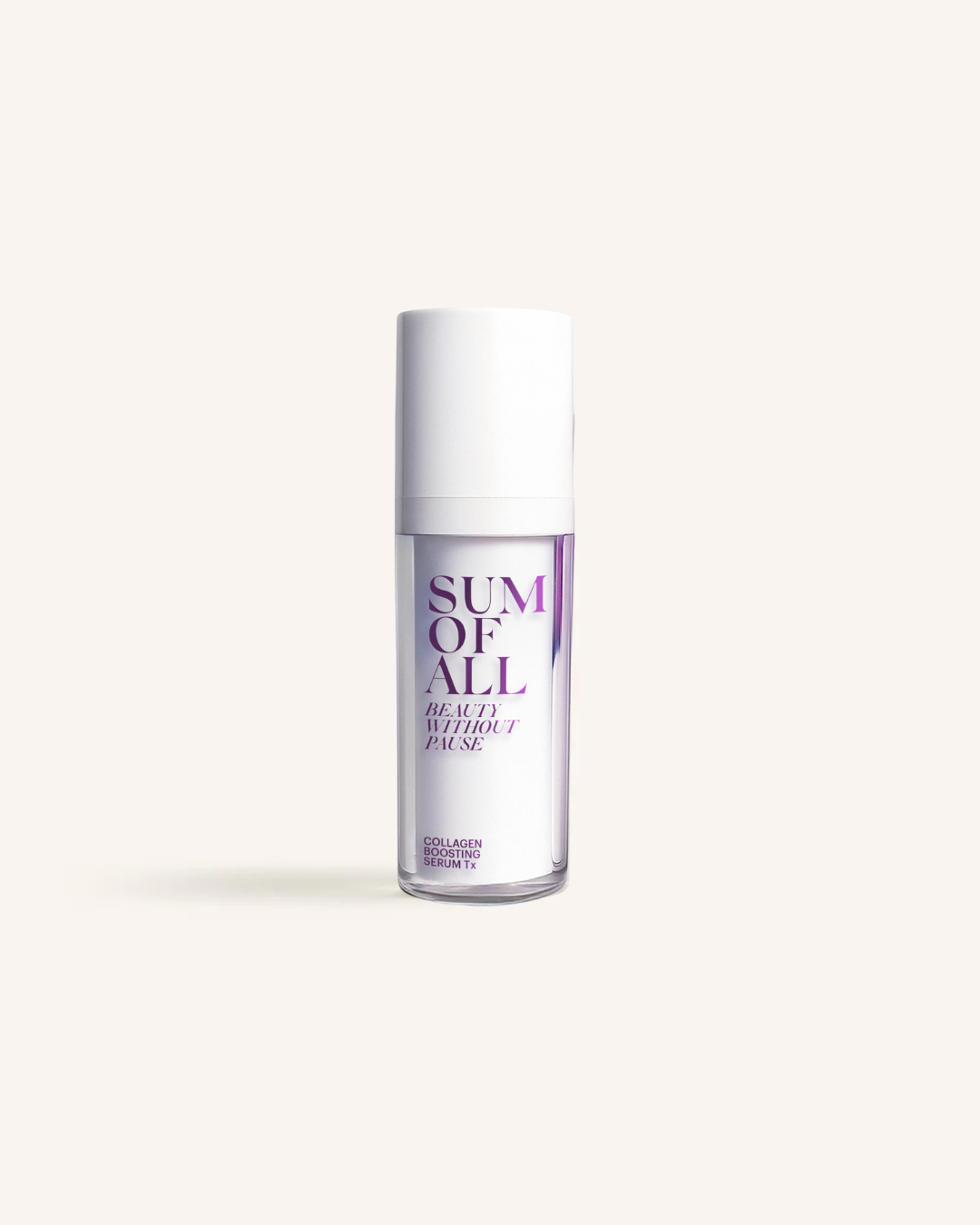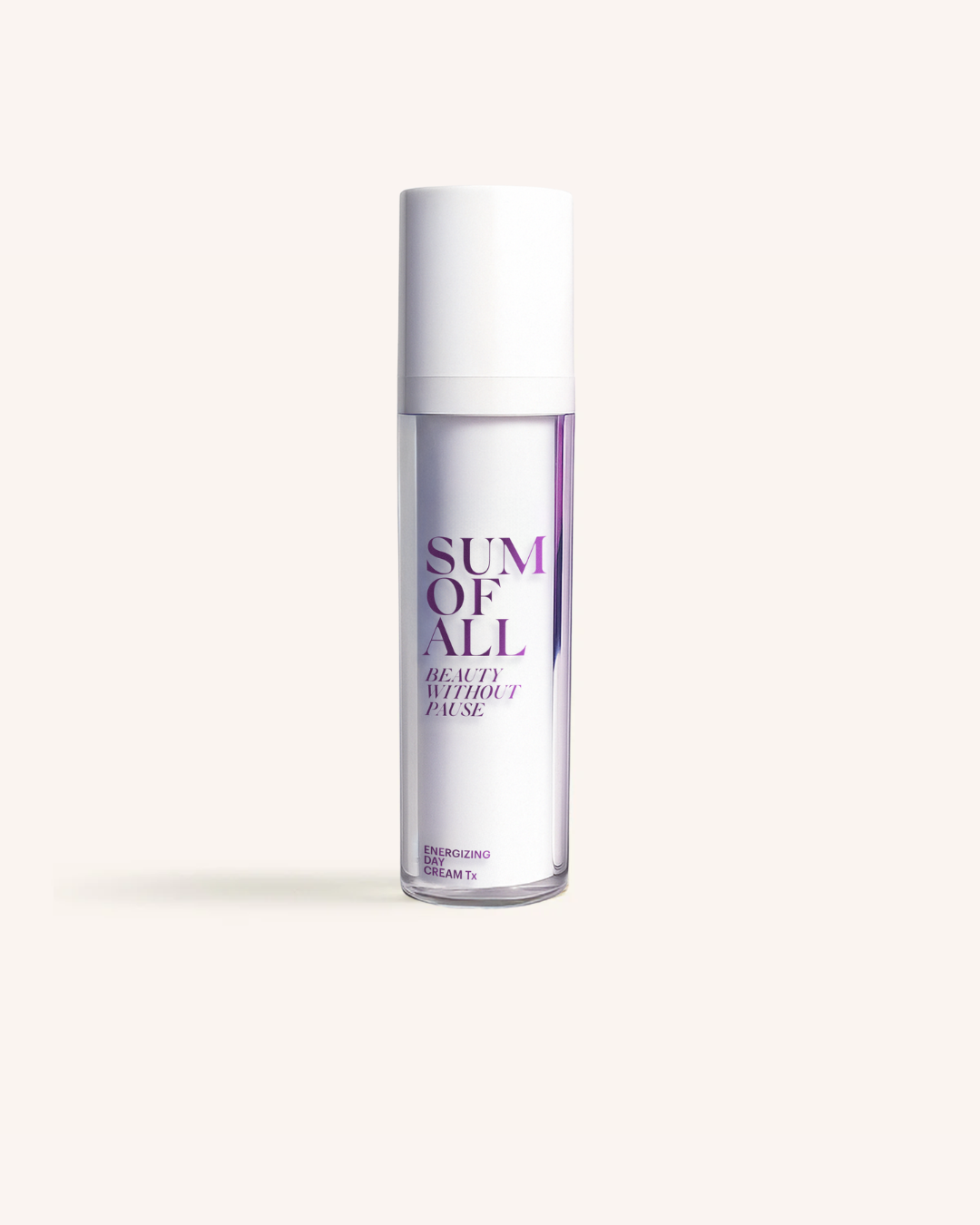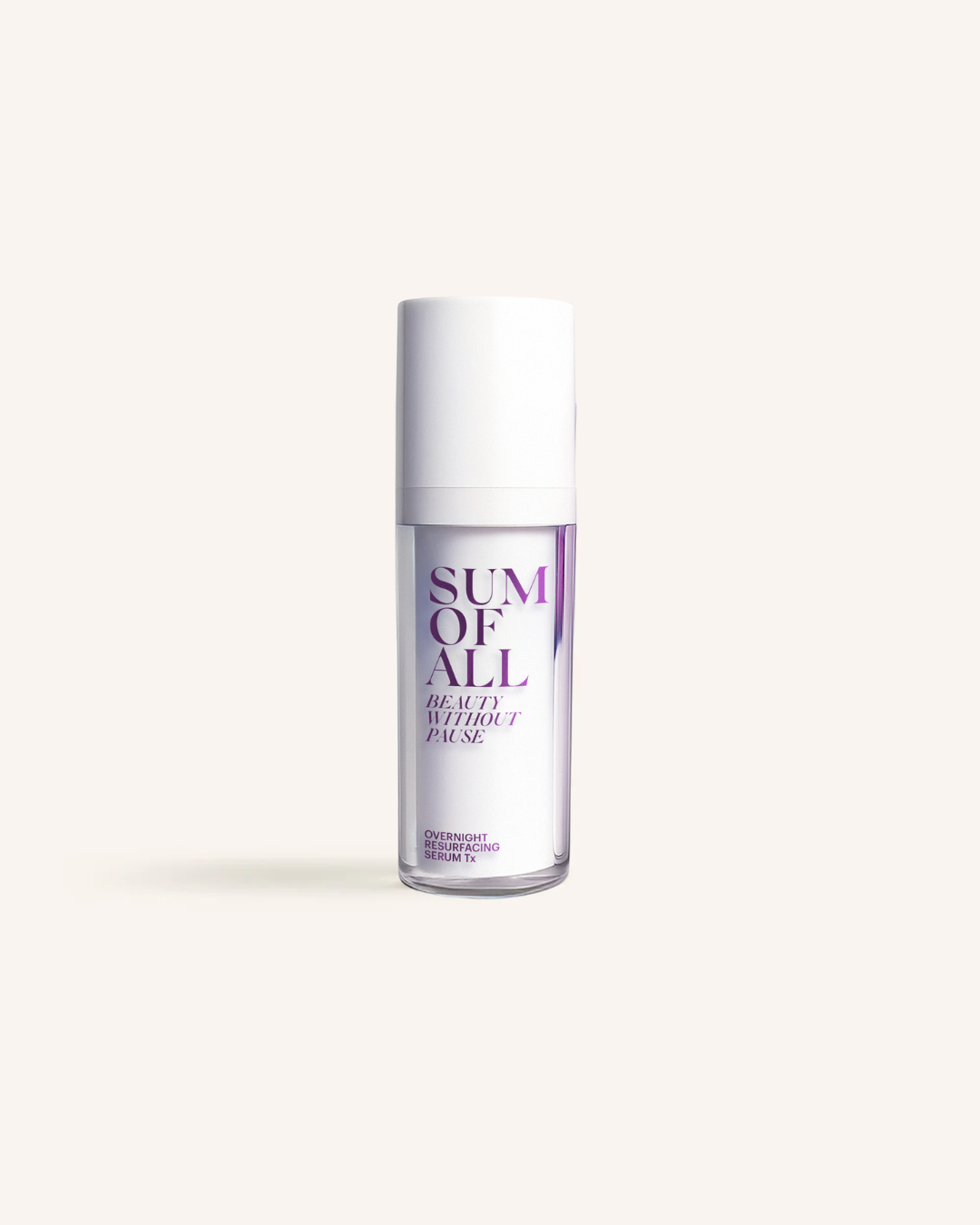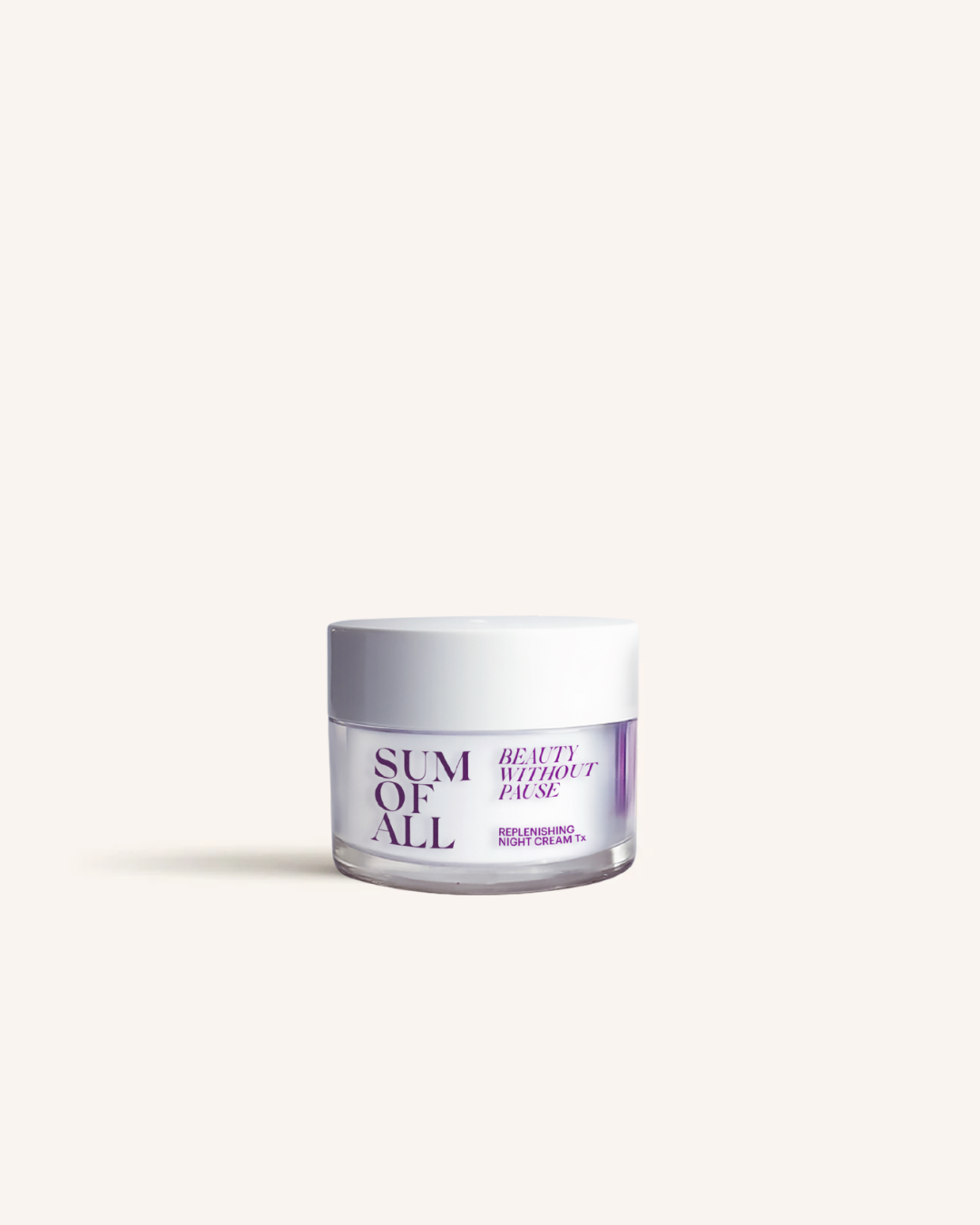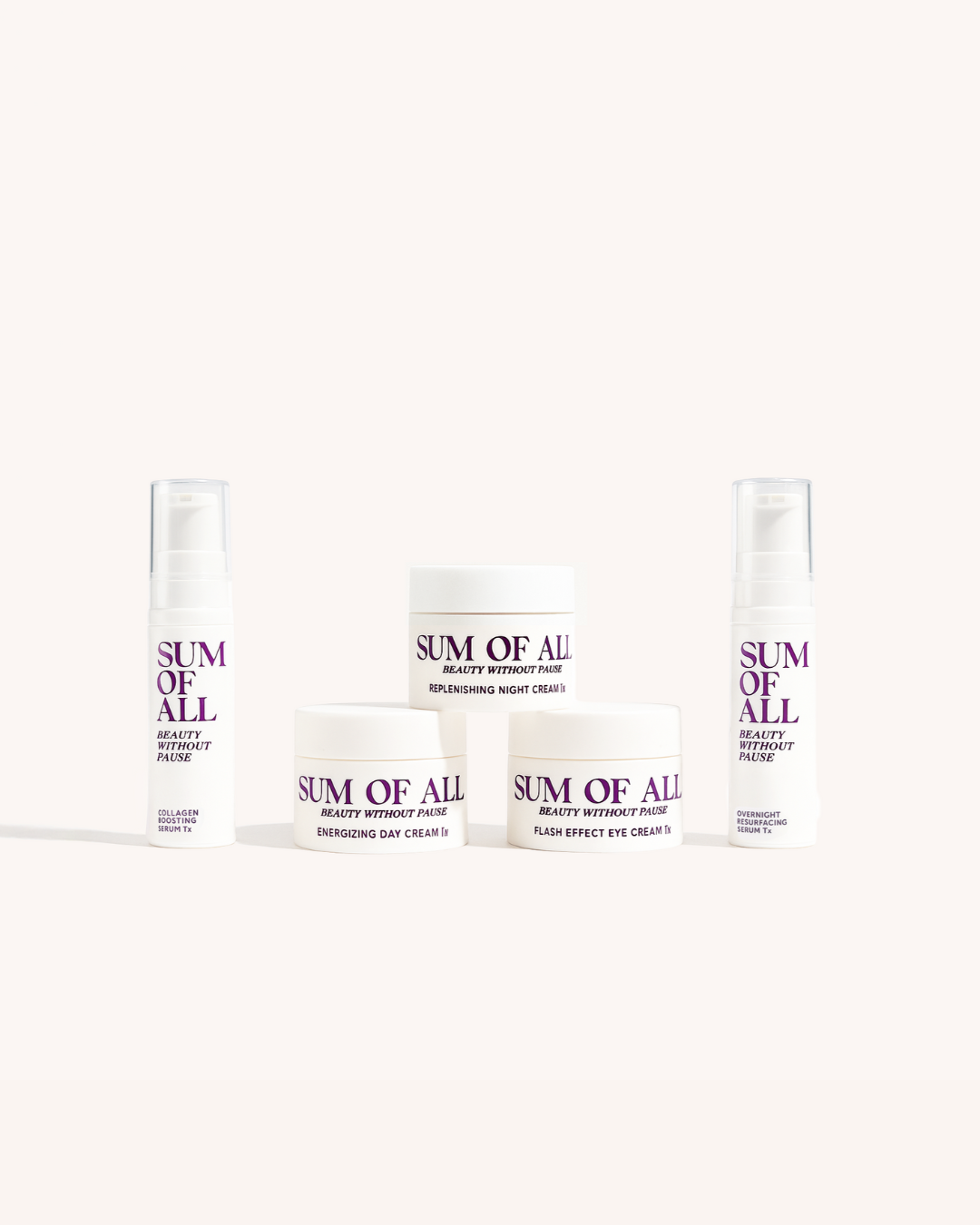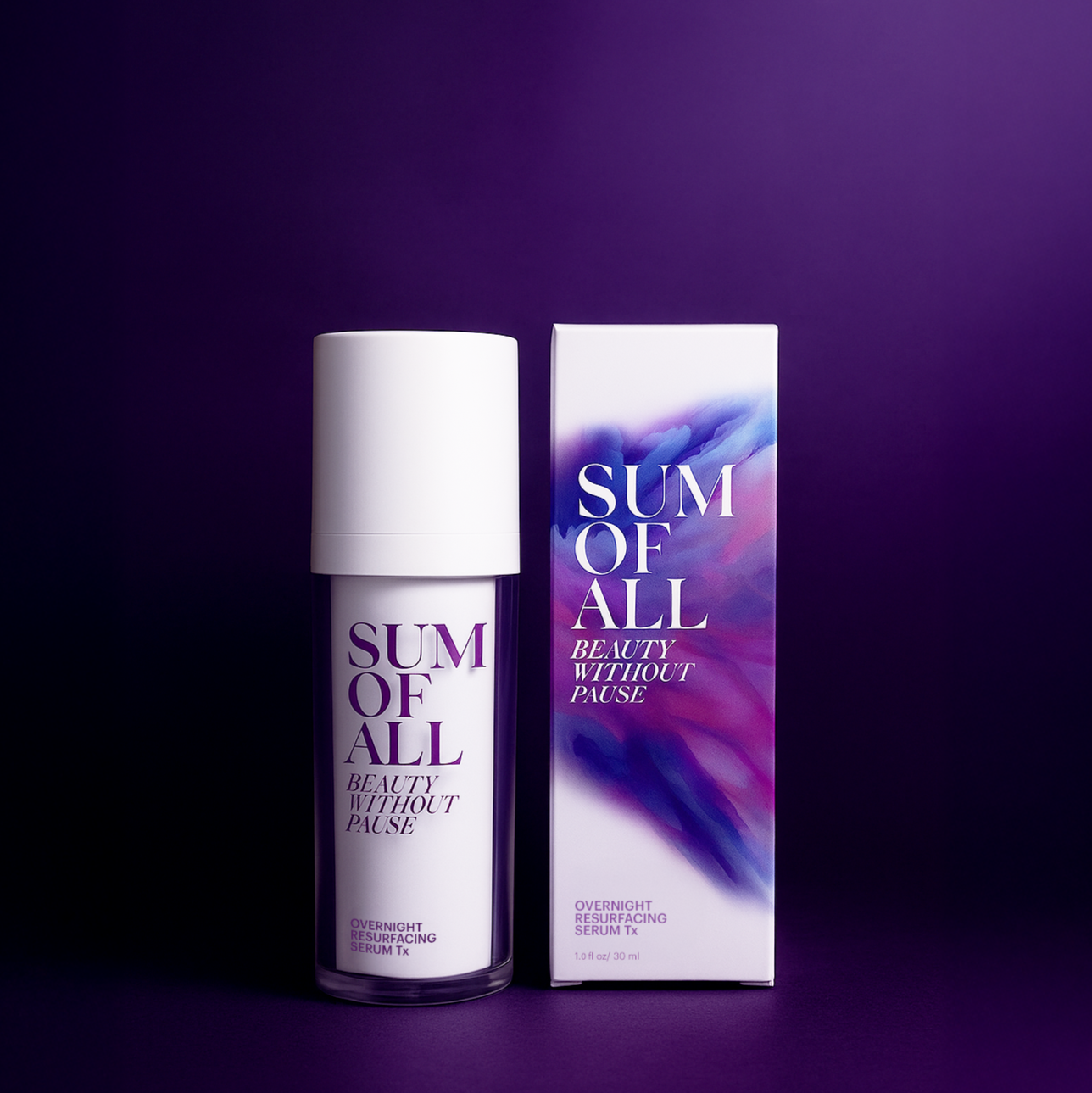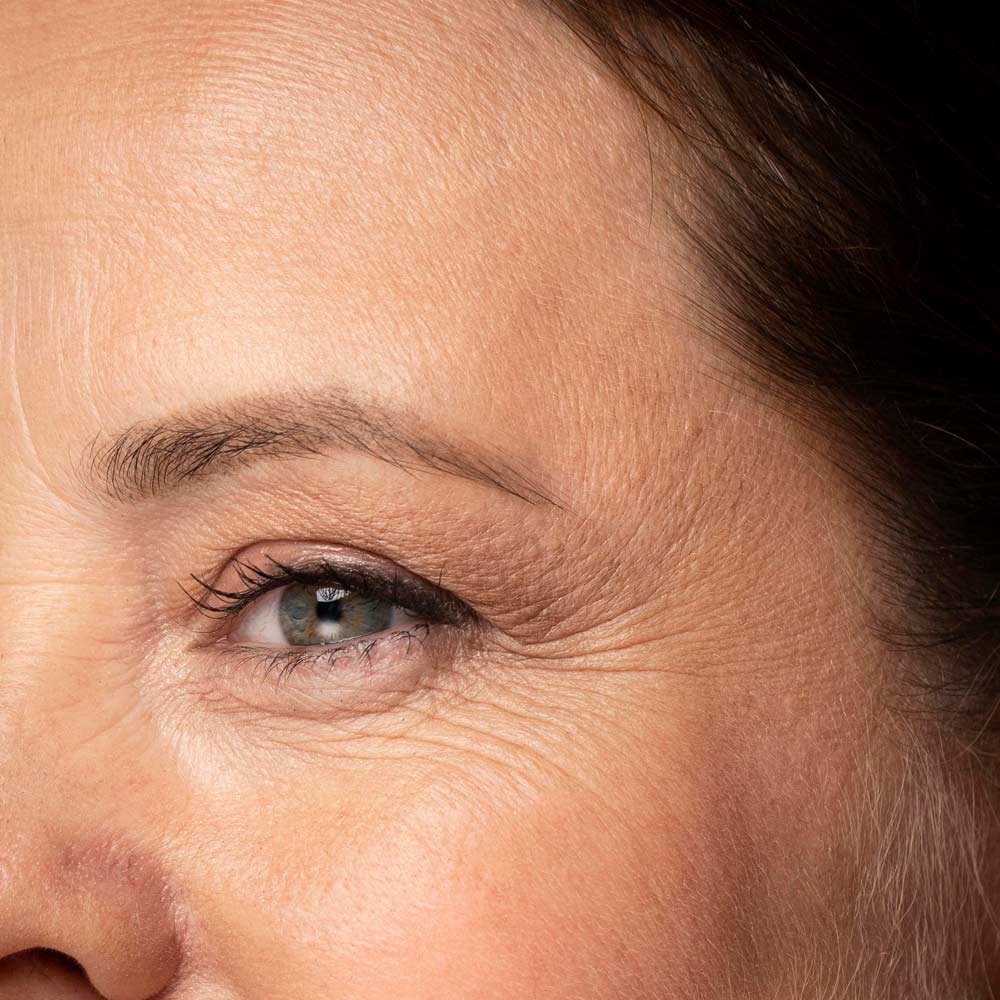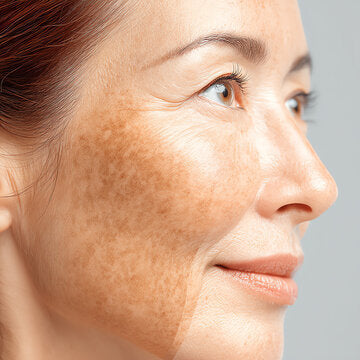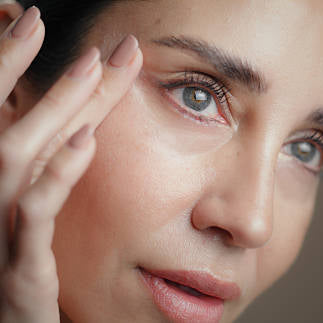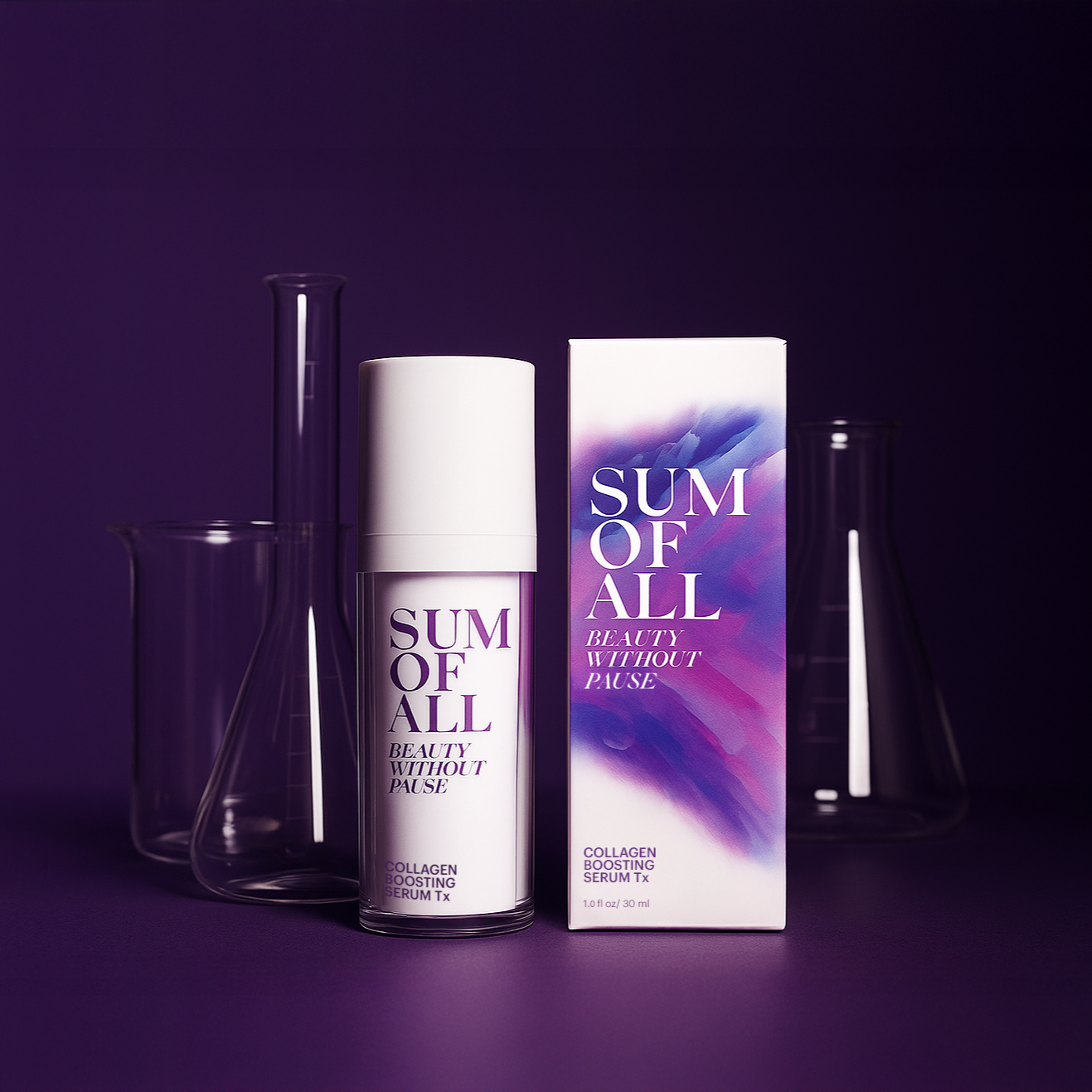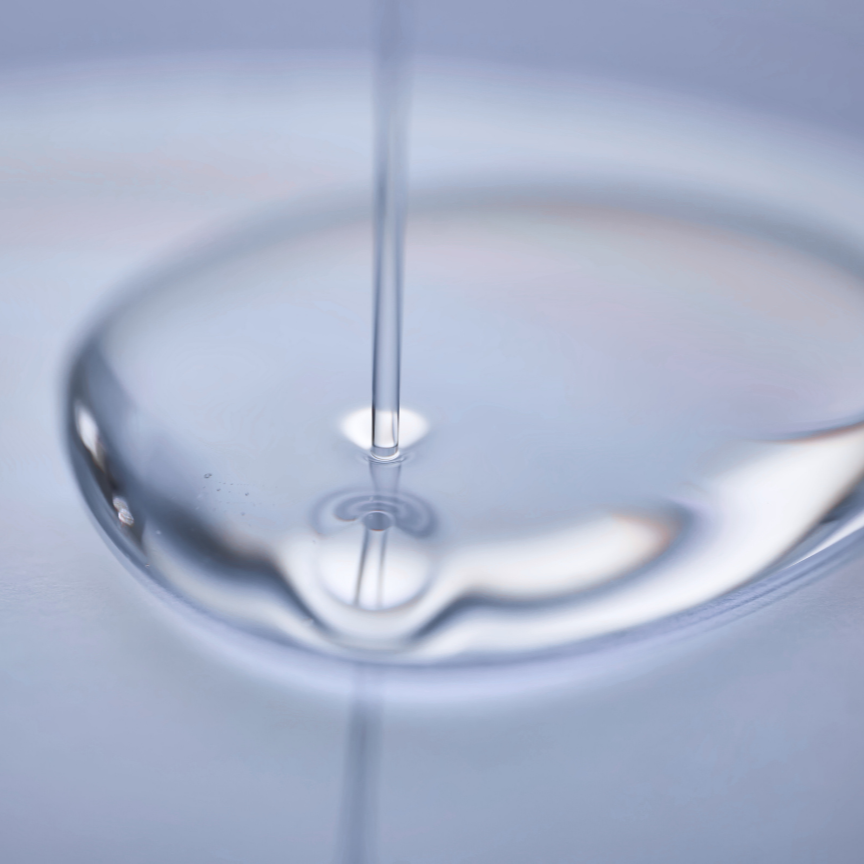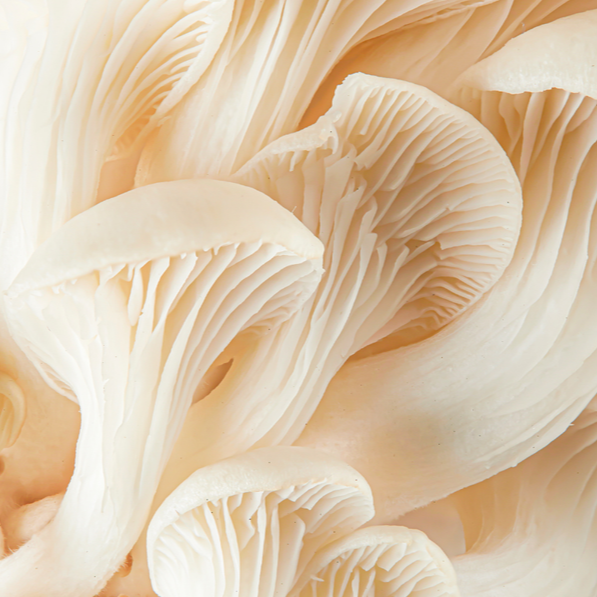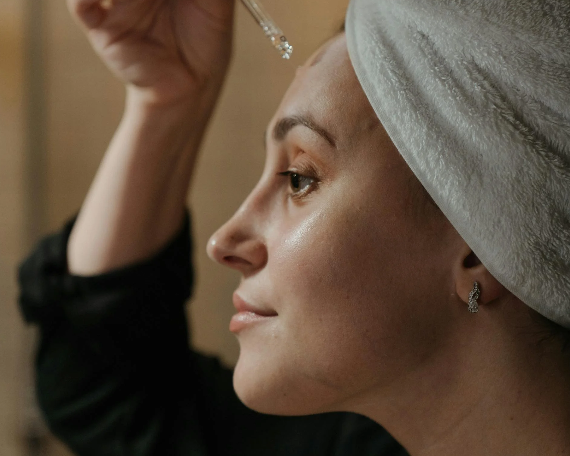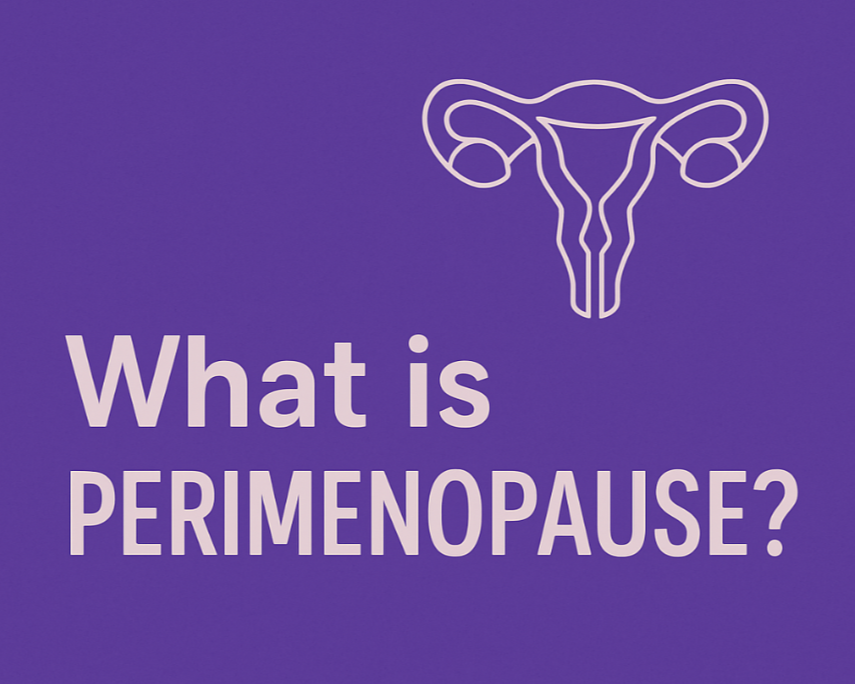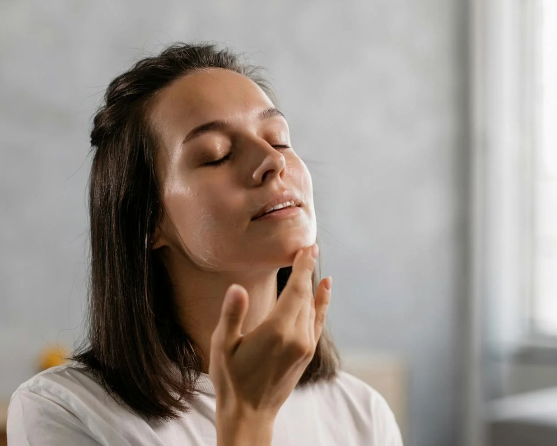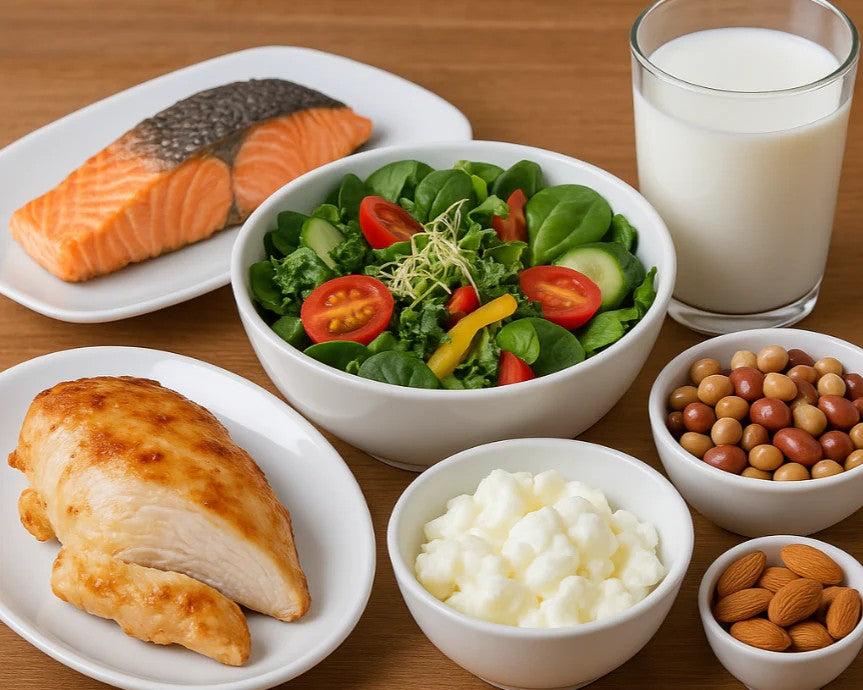Menopause is a time of significant change, not just hormonally but for your skin as well. As estrogen declines, your skin produces less collagen, hydration levels drop, and common concerns like dryness, thinning, and increased sensitivity can appear. While topical products play a vital role, the foundation of healthy skin during menopause starts with two essential pillars: a consistent, effective skincare routine and a nutrient-rich diet.
Let’s explore what truly works - and what remains unproven - when it comes to supporting your skin from the inside out.
Your Skin Changes During Menopause - Here’s Why
With age and hormonal shifts, the skin becomes less efficient at retaining moisture and producing collagen. Collagen is the protein responsible for firmness and elasticity, and its gradual decline contributes to sagging, fine lines, and dullness.
According to the National Institute on Aging, declining estrogen levels directly affect collagen synthesis, oil production, and barrier function. Topical retinoids, moisturizers, and barrier-supporting products can help, but what you feed your skin through your diet can be just as important.
The Truth About Collagen Supplements: Proceed with Caution
You’ve probably seen collagen powders, drinks, and capsules promising youthful skin. However, research on collagen supplementation remains limited, especially for women experiencing menopause. Some small studies, such as those published in Nutrients, suggest minor improvements in hydration and elasticity. But the scientific consensus is still inconclusive, as most studies are short-term and industry-funded.
Until large-scale, independent human trials confirm long-term benefits, the safest and most effective approach is to focus on foods that naturally support collagen production.
Focus on a Collagen-Boosting Diet
Your body cannot absorb collagen in its whole form. Instead, it breaks it down into amino acids, which can then be repurposed to support skin, joints, and connective tissue.
Whole foods that naturally stimulate collagen synthesis include:
-
Chicken – rich in connective tissue and amino acids
-
Eggs – especially the whites and yolks for protein and healthy fats
-
Fish and seafood – particularly with the skin and bones
-
Dairy – for amino acids like glycine and proline
-
Beans and legumes – excellent sources of plant-based protein and minerals
-
Leafy greens (like spinach and kale) – antioxidants that protect collagen
-
Tomatoes and bell peppers – high in vitamin C, crucial for collagen formation
Studies show that vitamin C is essential for collagen biosynthesis, making a balanced, antioxidant-rich diet more effective for long-term skin health than supplements alone.
Hydration: The Unsung Hero of Skin Health
Your skin relies on proper hydration to maintain its barrier and elasticity. While drinking water won’t erase wrinkles, it supports your body’s natural repair systems.
Aim to drink at least one-third of your body weight in ounces of water daily, more if you’re active or live in a warm climate. According to the Journal of Clinical Medicine, hydration helps optimize cell turnover and improve skin barrier recovery, particularly in aging skin.
Skin-Supporting Nutrients to Prioritize
While collagen is a key structural component, other nutrients are equally vital for maintaining healthy, resilient skin:
1. Vitamin C
Supports collagen production and protects the skin from oxidative stress.
Sources: citrus fruits, kiwi, strawberries, broccoli, Brussels sprouts, leafy greens.
2. Vitamin D
The skin’s ability to produce vitamin D declines with age, impacting both skin and bone health.
Sources: fatty fish (salmon, mackerel), fortified dairy, egg yolks, mushrooms, and moderate sun exposure.
3. Omega-3 Fatty Acids
Help reduce inflammation and promote healing. A 2018 review in Nutrients found that omega-3 supplementation improves skin barrier function and hydration.
Sources: salmon, flaxseed, chia seeds, walnuts, canola oil, edamame.
4. Probiotics
Support the gut-skin axis by reducing inflammation and improving hydration.
Sources: yogurt, kefir, kimchi, miso, sauerkraut, and cottage cheese.
Don’t Skip Your Skincare Routine
While diet nourishes your skin from within, a consistent topical routine is your daily defense.
-
Cleanse gently to avoid stripping natural oils
-
Moisturize deeply with bioavailable peptides and ingredients like Tremella Mushroom and Red Algae
-
Use SPF every morning, even on cloudy days
-
Incorporate retinoids or alpha-hydroxy acids (AHAs) at night to promote cell renewal
-
Target specific concerns with high-quality serums like the Overnight Resurfacing Serum Tx or Collagen Boosting Serum Tx
Consistency builds results - your skin’s resilience depends on both inner nutrition and outer nourishment.
The Bottom Line
When it comes to maintaining healthy skin during menopause, there’s no single miracle supplement or quick fix. Collagen powders might be trendy, but scientific data remains limited. Instead, focus on combining nutrient-dense foods, proper hydration, and a simple, effective skincare routine designed for hormonal skin.
Your skin is a reflection of your overall wellness - treat it with care, inside and out.
Written by: Sophia Almonda
Sources
-
National Institute on Aging. (2023). What is Menopause? https://www.nia.nih.gov/health/what-menopause
-
De Miranda, R. B., et al. (2021). Effects of Hydrolyzed Collagen Supplementation on Skin Aging: A Systematic Review and Meta-Analysis. Nutrients. https://pubmed.ncbi.nlm.nih.gov/34440864/
-
Pullar, J. M., Carr, A. C., & Vissers, M. C. (2017). The Roles of Vitamin C in Skin Health. Nutrients. https://www.ncbi.nlm.nih.gov/pmc/articles/PMC6204628/
-
Harding, C. R., et al. (2013). The Role of Skin Barrier Function and Hydration in Healthy Skin Maintenance. Journal of Clinical Medicine. https://pubmed.ncbi.nlm.nih.gov/23575492/
- Puglia, C., et al. (2018). The Role of Omega-3 Fatty Acids in Skin Health. Nutrients. https://pubmed.ncbi.nlm.nih.gov/30360489/
Read more
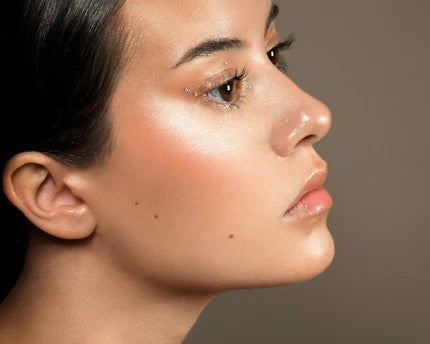
Glow-Up for the Holidays: Your 5-Step Skin Revival Guide for Radiant Skin The holiday season was drawing near, and the excitement in the air was undeniable. It wasn’t just the music, the lights, or...

Encapsulated Vitamin C delivers the familiar benefits of Vitamin C - brightening, antioxidant protection, and collagen support - in a more stable, skin-compatible form. By surrounding the active in...


